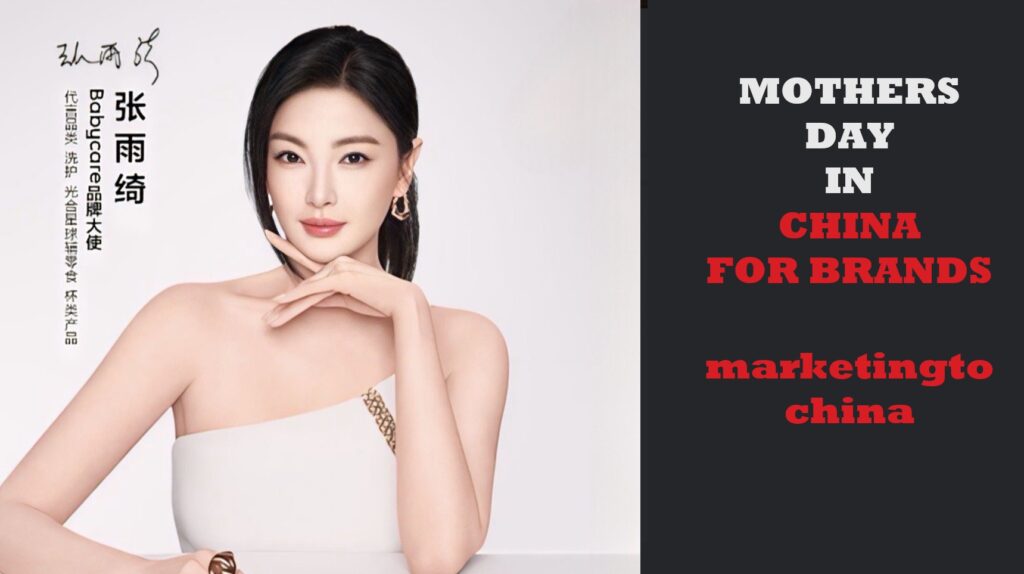Mother’s Day in China is celebrated similarly to many other places around the world, but for Brands it is “special”
In China, as in many cultures, the role of the mother is deeply respected, with traditional values emphasizing filial piety—a Confucian virtue of respect for one’s parents, elders, and ancestors. The modern celebration of Mother’s Day offers an opportunity to express gratitude and love toward mothers through gestures like giving gifts, sending messages, and spending quality time together.
Mother’s Day Celebrations, opportunities for Brands
Common ways to celebrate include:
- Gift-giving: Popular gifts include flowers, particularly carnations and roses, which symbolize love and gratitude.
- Diner: Many families take mothers out for a meal, whether it’s a simple gathering or a lavish dinner.
- Health and wellness : It’s also popular to gift health and wellness-related items or experiences, such as spa treatments or health supplements, reflecting the Chinese emphasis on long-term health and well-being.
Brand Involvement
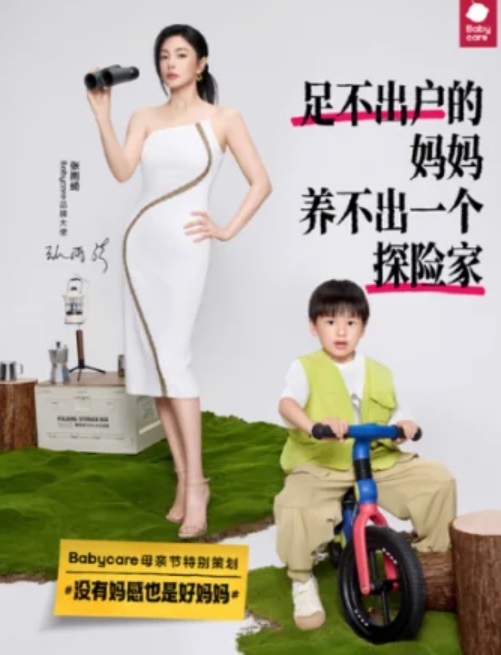
In China, Mother’s Day has also become a significant retail and promotional event. Brands across various sectors—ranging from electronics to cosmetics—often launch sales promotions to coincide with the holiday. This commercial aspect is similar to trends seen in Western countries, where Mother’s Day prompts significant consumer spending.
Read more
Brands ecommerce events in China
The concept of a “brands festival” around Mother’s Day isn’t traditionally established but can be likened to shopping festivals such as Singles’ Day (November 11th) or the Mid-Autumn Festival, during which companies offer special deals. For Mother’s Day, brands might offer themed promotions specifically tailored to popular gifts for mothers, such as jewelry, beauty products, or household appliances.
This blend of traditional respect for mothers with modern commercial opportunities reflects the dynamic and evolving nature of cultural celebrations in China today, balancing reverence for familial roles with the realities of contemporary consumer culture.
This Mother’s Day, what should be a relaxing day for mothers often gets drowned out by the bustle of everyday life. This year, we’ve decided to reclaim Mother’s Day for its true protagonists—the mothers—by exploring ways to break free from the long-standing exhaustion that burdens them and offering a chance to enjoy a journey of relaxation and freedom on this special day.
Breaking away from the traditional ways of celebrating Mother’s Day, we’ve observed that mothers are still entangled in trivial matters during the festival. Despite receiving blessings and flowers, they are unable to truly relax. Scheduled on the second Sunday of May, Mother’s Day should be a weekend of rest, but is it really a break for mothers? How can we break this cycle of hardship and give mothers the real rest they deserve?
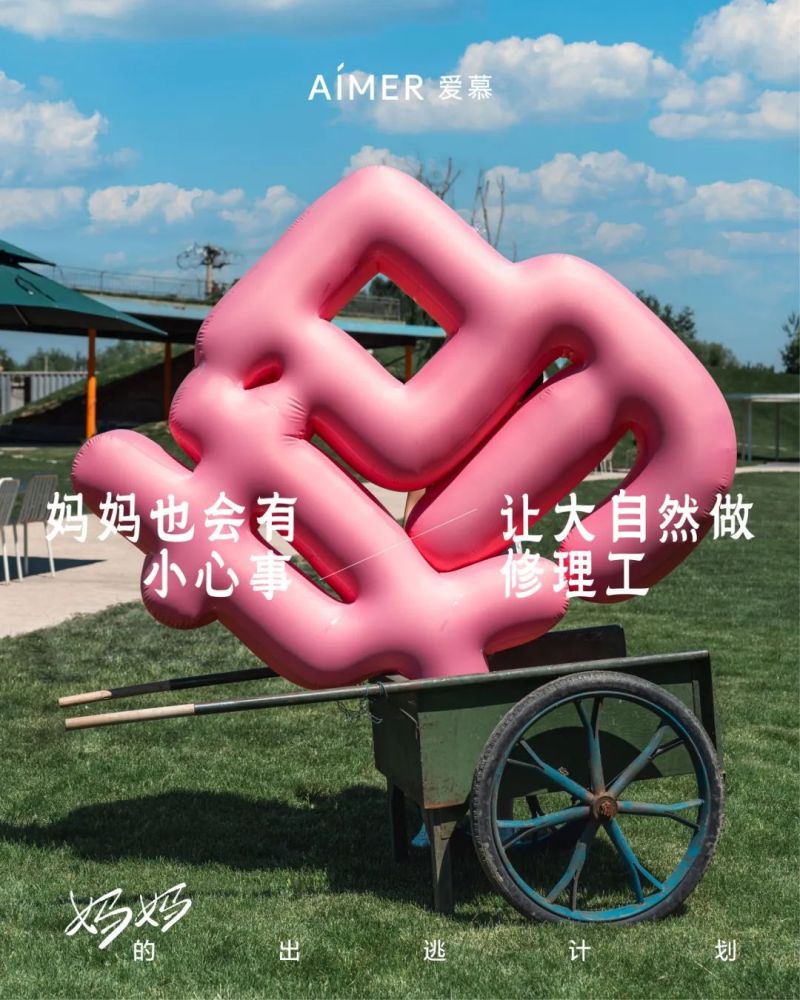
“All holidays are like labor days for mothers.” This statement profoundly captures the ongoing sentiment of mothers. This year, we advocate for mothers to take a ‘breakaway’—to temporarily shed their roles, return to themselves, and enjoy a liberating experience. From official calls to action to social responses, the #MothersEscapePlan campaign has sparked a trend online, offering mothers a chance to ‘skip out’ and revel in freedom.
On May 9, three guests took the lead in ‘breaking away,’ initiating this unique Mother’s Day celebration. Through campaigns like #NotJustAnActressTodayBeJiangQinQin#, mothers were encouraged to drop their burdens and take a day off for themselves. On May 10, we provided a series of ‘escape tips,’ such as mini-trips, social outings, and embracing nature, allowing mothers to fully relax and enjoy their own time on this day.
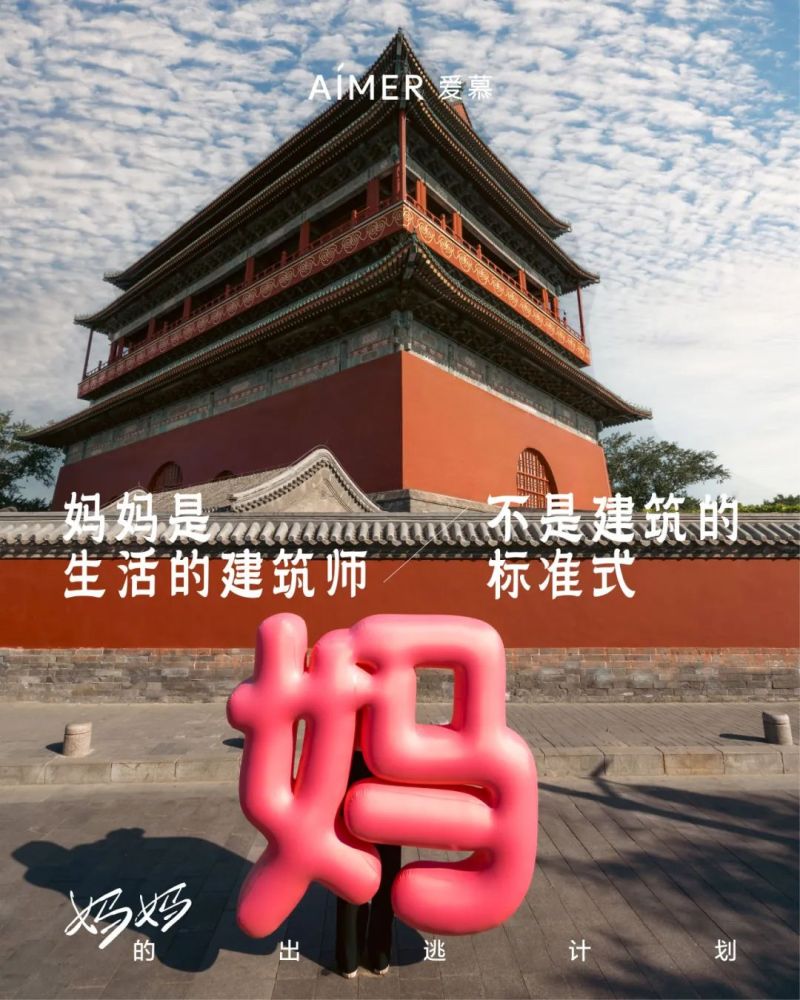
“A mother’s life is a wilderness, not a narrow circle of busyness; a mother is an architect of life, not a standard building.” These campaign slogans poignantly sketch the image of mothers and resonate with their desire for freedom. During the campaign, mothers were also invited by XiaoHongShu’s maternal and child influencer @ShuBaoBao to visit XiaoHongShu’s Beijing headquarters to discuss special co-branded Mother’s Day events. This series of activities not only provided relaxation for mothers but also sparked societal attention to their needs.
By May 11, as the campaign’s popularity soared, netizens created numerous memes expressing their wishes for mothers to ‘escape.’ These memes reflect mothers’ longing for a brief freedom and a desire for relaxed times. Each meme is a romantic confession to the mothers, making them feel the care and understanding of society.
This Mother’s Day in China, Babycare, in collaboration with their brand ambassador Zhang Yuqi, launched the innovative campaign titled ‘Don’t Call Me Mother Today’. The campaign featured a poignant short film released on May 10, which resonated deeply with the slogan, “A good mother remains a good mother, even without the title.” Subsequently, the hashtag #ZhangYuqiDontCallMeMotherToday# (张雨绮 今天别叫我妈妈)
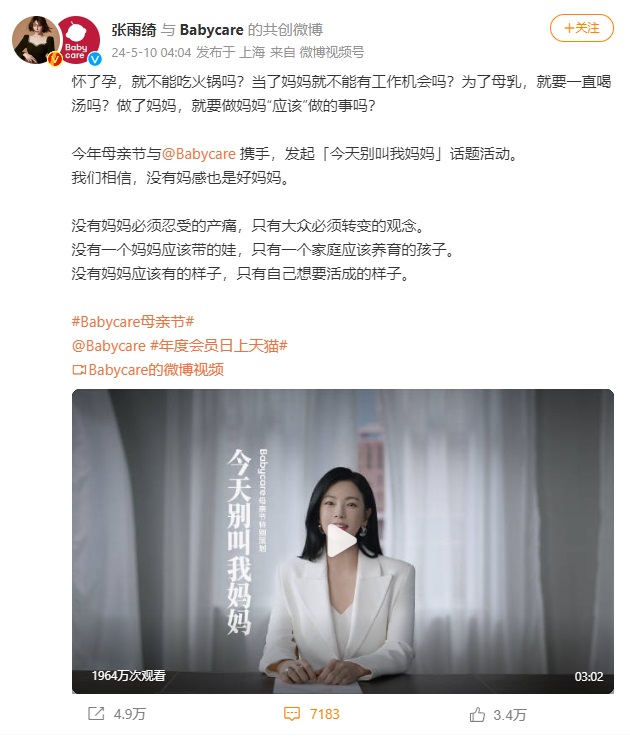
The film presented several narratives of motherhood to challenge traditional perceptions with messages like, “Motherhood does not necessarily involve enduring birth pain, but rather changing societal attitudes,” “A mother isn’t solely responsible for raising a child; it’s a collective family effort,” and “There is no fixed way to be a mother, only the way she chooses to be.” Babycare used the opportunity to promote its “Painless Childbirth” initiative, now active in 11 hospitals across 7 provinces, and to announce the renaming of “mother and baby rooms” to “nursery rooms” to avoid gender-specific labels in childcare.
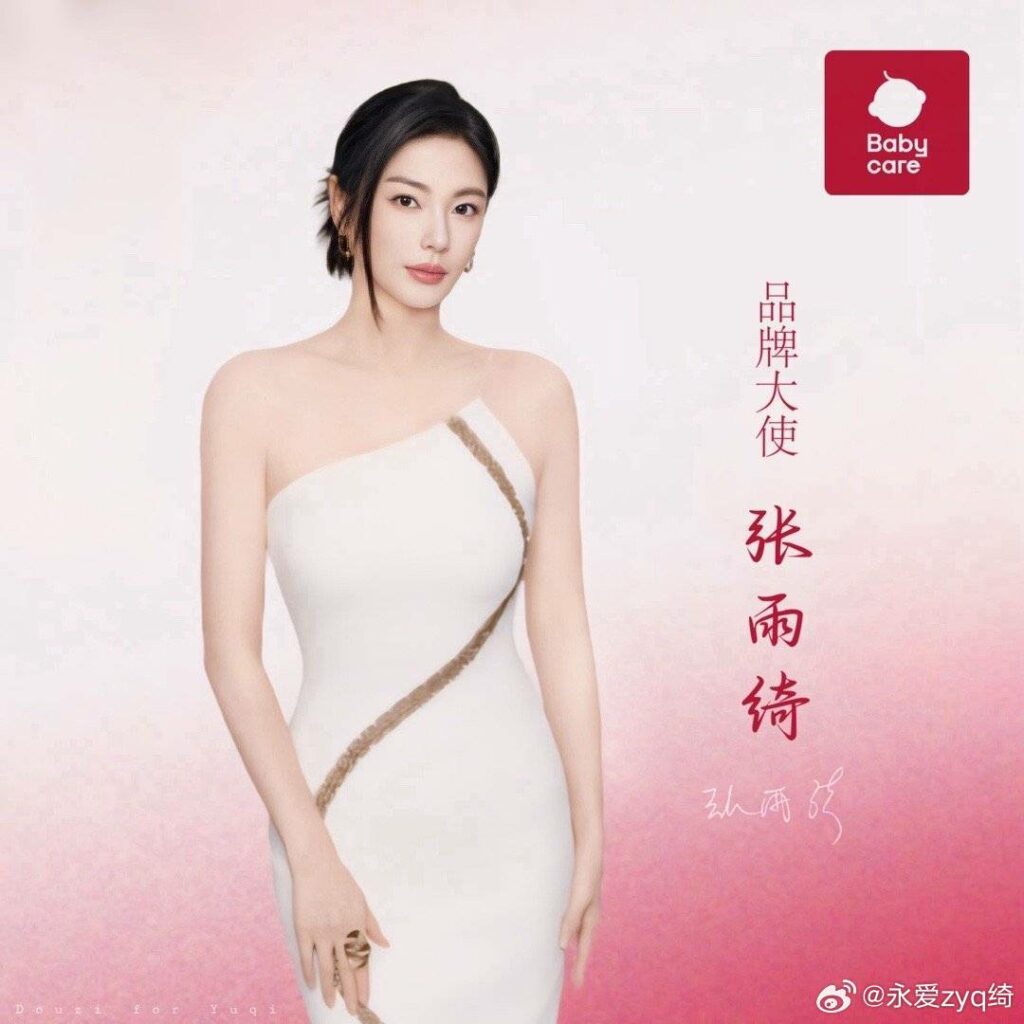
The campaign, a departure from typical Mother’s Day celebrations, highlighted the complex realities of motherhood rather than merely celebrating it. On the same day, Babycare shared ‘99 moments when I didn’t want to be called mum,’ a compilation of sentiments from mothers, further emphasizing the theme. Zhang Yuqi, who has shaped a public image of independence through her personal and professional life, lent significant influence and authenticity to the campaign.
The campaign received mixed reactions on Weibo. Many users admired Zhang Yuqi’s portrayal of motherhood, appreciating her representation of an authentic, multifaceted woman over the traditional idealized mother. However, some questioned whether the theme of downplaying traditional motherhood roles was appropriate for a Mother’s Day campaign by a brand focused on mothers and babies.
In a broader trend, other brands also adopted unconventional approaches to Mother’s Day. For instance, skincare brand HBN debuted a documentary titled ‘Becoming a Mother’ to inspire single mothers, and Jingrun Pearl coined the term ‘Jenbeng Mom’ to celebrate motherhood, promoting it on RED . Similarly, children’s medicine brand Xiaokuaike released ‘Rumoured Superpowers,’ advocating shared parenting responsibilities and supporting the diverse community around mothers.
Read more

